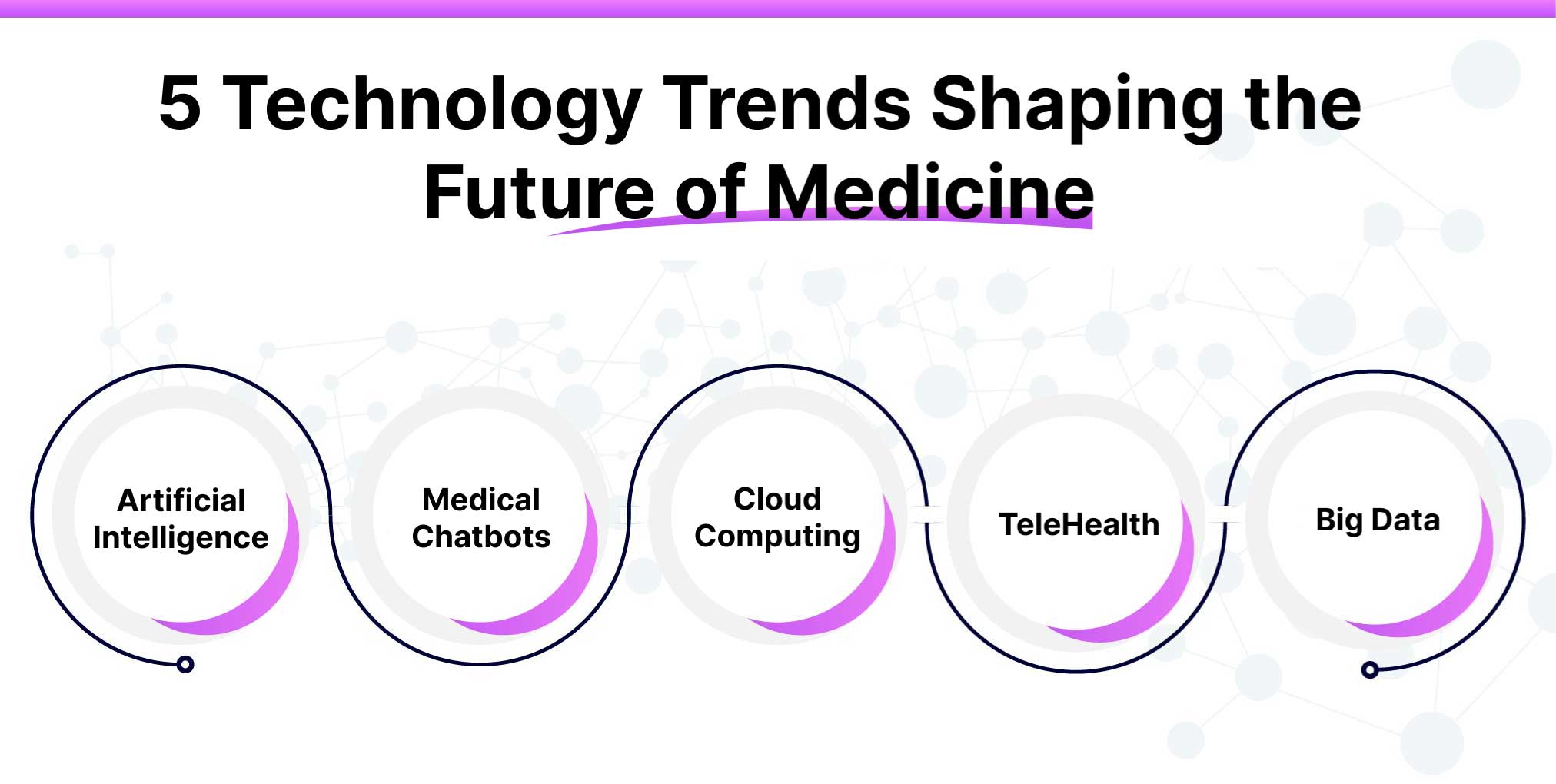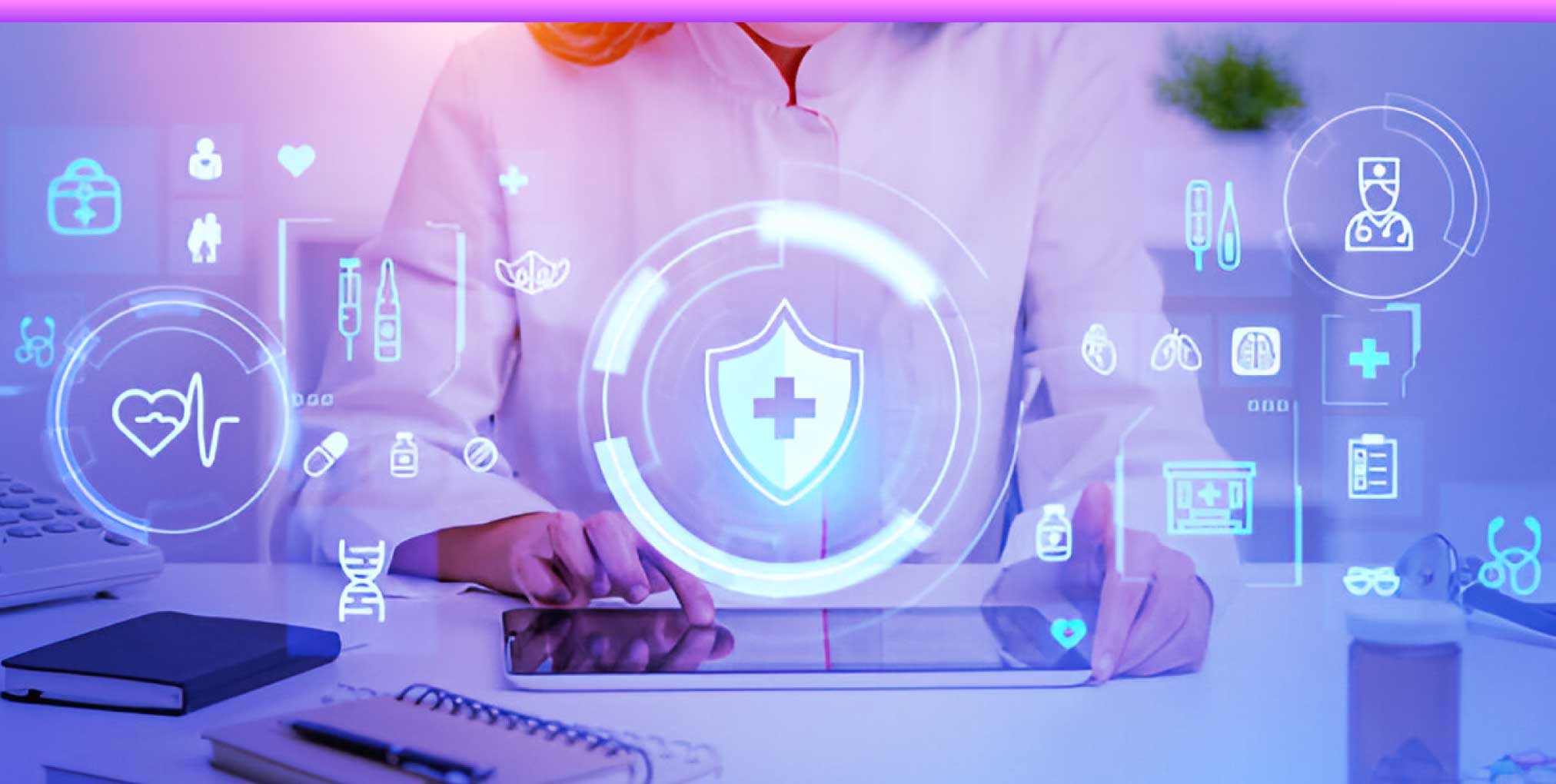

May 7, 2024
All You Need To Know About The Future Of Medicine
What do you think the future of medicine will look like after 25 years? Isn’t it hard to predict? The advancements in technology are constantly evolving what medicine could be in the coming years. A few years back, it was impossible to think that patients would be able to consult and get treatment remotely or robots would be assisting in surgeries.
Today, we see all these things happening in front of us that once seemed fictional. The future of medicine will be more patient-centric. What does it mean? It indicates that the technology or solutions of the future will be designed with patients’ convenience in mind for the betterment of patients.
Undoubtedly, technological advancements have made the healthcare experience better for not only patients but also doctors, especially advancements of AI in medical. But the question here is: What does the future of medicine look like in the years ahead?
In this article, we will explore the technologies shaping the future of medicine and the exciting future of the medical field.
5 Technology Trends Shaping the Future of Medicine

We’ve mentioned a couple of times that the advancements in technology are transforming medicine. Curious about what these technologies are and how they are shaping the healthcare future?
Don’t worry; we have mentioned the 5 top technological trends that are at the forefront of building a better future for the medical sector. These technologies are:
1. Artificial Intelligence
Who isn’t familiar with the transformative capabilities of artificial intelligence? Healthcare businesses are investing heavily in AI solutions development to change how healthcare is being delivered. According to Markets and Markets, the global AI in healthcare market size will reach $20.9 billion in 2024 and is expected to grow to $148.4 billion by 2029.
AI in healthcare has already helped healthcare organizations and professionals overcome numerous pain points. It allows caretakers to stay focused on patient health. But how is it possible?
The AI capabilities of automating administrative processes, streamlining workflows, and reducing all the time-consuming process of paperwork made it possible. It’s just a little glimpse of what it can do to revolutionize the industry; the reality is far more comprehensive and exciting.
Here is how AI is used in healthcare and is redefining the future of medicine:
- AI acts as a catalyst in the drug discovery and development process.
- AI assists healthcare professionals in detecting diseases earlier before reaching a critical stage, thus improving patient outcomes.
- There was no concept of personalized medicine. There was only a one-size-fits-all approach to treating health issues.
- Before the advent of AI, it was impossible to think that robots would ever help in surgeries.
AI has just made life easier for doctors and patients. These are just a few practical applications of AI in medical. You can learn more about the use cases of AI in life sciences and the potential challenges of implementing AI in healthcare. We can hardly predict what AI will bring to us in the near future and how advancements in AI will transform medicine.
Read More: AI Chatbot Development Tips: Building AI-based Chatbot in 2024
2. Chatbots
There are different types of chatbots for specific objectives. You might have encountered chatbots on e-commerce websites or websites. These chatbots drive leads and take your visitors through the buyer funnel. But have you ever come across medical chatbots? You heard it right; chatbots aren’t limited to any business domain.
Healthcare businesses are adopting AI chatbots for their numerous benefits. According to AWS Marketplace, the global healthcare chatbots market was $184.60 million in 2021 and is expected to reach $431.47 million by 2028.
Medical chatbots are becoming the norm. Here is how these chatbots can help healthcare organizations:
- Patient concerns are addressed much faster, which enhances patient experience.
- Healthcare chatbots automate workflows to free up resources, thus saving costs.
- Retrieval of patient medical information is quicker with the help of chatbots.
These are only some pros of using an AI chatbot for your healthcare business. In the future, chatbots will expand their roles, serving a wider array of purposes across healthcare.
3. Cloud Computing
Healthcare organizations are adopting cloud computing because of its numerous benefits. These include cost-effectiveness, adapting to changing industry needs, data recovery, and increased performance. According to Precedence Research, the global healthcare cloud computing market was $11.27 billion in 2021 and is expected to exceed $62.47 billion by 2030.
Here is how cloud computing helps patients and doctors:
- All EHRs coming from different sources are centralized in a single place.
- Cloud systems allow professionals to access patients’ records conveniently from anywhere via the Internet, thus improving decision-making.
- Healthcare cloud services are on-demand, and you can scale up or down with the changing organizational requirements.
Cloud computing is an emerging trend that will continue to shape the future of medicine as it evolves. Its integration with other technologies, like IoT, will significantly improve patient monitoring.
4. TeleHealth
Did it ever happen that you have to wait in a long queue to schedule an appointment with the doctor? You must revisit the doctor for further recommendations once you consult the doctor and get your tests done. It has happened to all of us at one point in our life.
Digital transformation in medicine is reinventing the ways of scheduling and consulting doctors. Now you don’t have to wait in queues in a hospital for your turn. Telehealth technologies are making it convenient for patients to consult their caretakers at the ease of home. It is one of the biggest trends in healthcare in 2024.
Patients at high health risk or those facing mobility issues can interact with healthcare providers through telemedicine. Moreover, digital health tools and wearable devices have made it easier for doctors and clinicians to remotely access patients’ health factors.
Telehealth will soon become an integral part of a patient-centered healthcare system. This shift will enhance the efficiency of healthcare delivery and improve patient’s quality of life by making healthcare more personalized and accessible.
Read More: The Growing Role of Big Data and Machine Learning in Healthcare
5. Big Data
Big Data Analytics is another technological trend that will transform the future of medicine. It is reshaping the way doctors analyze, utilize, and manage healthcare data. They find patterns in data and develop strategies to enhance the quality of care provided to patients significantly.
Statista reports that the global Big Data analytics market was $240 billion in 2021 and is expected to reach $650 billion by 2029. Any inquisitive mind would wonder what caused this massive surge.
Here are some benefits of big data analytics that have led healthcare organizations to embrace it:
- A vast amount of medical data is analyzed to provide insights about patients to caretakers to improve patient healthcare by making data-driven decisions.
- Healthcare organizations remain cost-effective by having a better understanding of patient’s well-being. It allows them to allocate resources efficiently and reduce unnecessary treatment costs.
- Better forecasting of disease outbreaks, readmission of patients, etc, is possible with the help of big data analytics. It helps to allocate resources more efficiently.
Exciting Future of Medicine

We’ve mentioned a few technological trends that are playing a crucial role in revolutionizing the medical sector. The future of AI in medicine holds tremendous promise for transforming healthcare delivery. You must know that there are many more emerging technologies that will completely change how healthcare is delivered.
We are shifting towards the era of medicine where predicting cancer cells earlier is possible. It helps to prevent or treat the diagnosed disease earlier to avoid any unfortunate scenarios. Medicine is shifting from old traditional methods where you have some illness and want a cure to a proactive approach where you can access symptoms before they escalate.
Technological advancements will allow for more personalized and efficient management of diseases. For example, heart failure patients could benefit from remote monitoring systems that alert healthcare providers when intervention is needed. It ensures time treatment and improves healthcare delivery. It will be possible with the integration of wearable devices and telehealth platforms to continuously monitor patients’ well-being.
What’s more, patients will be incharge of their own health. They will have access to real-time data and reports using digital health tools. It will enable them to actively engage in the decision-making process about their health.
People are becoming more health concious after the pandemic. They no longer want to rely solely on doctors; they want to be involved and make decisions based on their understanding of their conditions.
These are just a handful of the many benefits that we will be able to witness in the near future. With further advancements in technology, the future of medicine has much more than this to offer for the healthcare sector.
Conclusion
With the speed at which technologies are evolving, it is hard to predict what the future of medicine holds for us. Key innovations like artificial intelligence, cloud computing, telehealth, and big data analytics are set to change the way healthcare is delivered in the past. These technologies will not only help professionals with their work but will also make the patient in charge in the near future. With more and more technologies emerging, the boundaries of what medical care can achieve will expand.
How Xeven Solutions Can Help Revolutionize Healthcare Through Advanced Technology
Integrating advanced technologies is no longer an option and has become essential for businesses to stay competitive. Xeven Solutions has helped hundreds of healthcare organizations adopt advanced technologies to succeed in this digital era. Their team of 200+ highly skilled AI experts crafts innovative custom AI solutions to meet and exceed healthcare businesses’ expectations. Contact us today to discuss how our robust solutions can meet your specific needs and help you deliver superior care.








